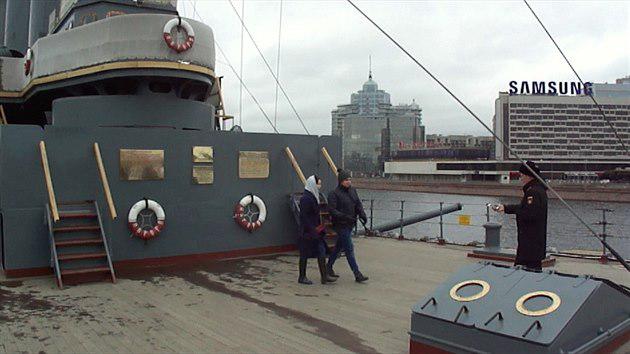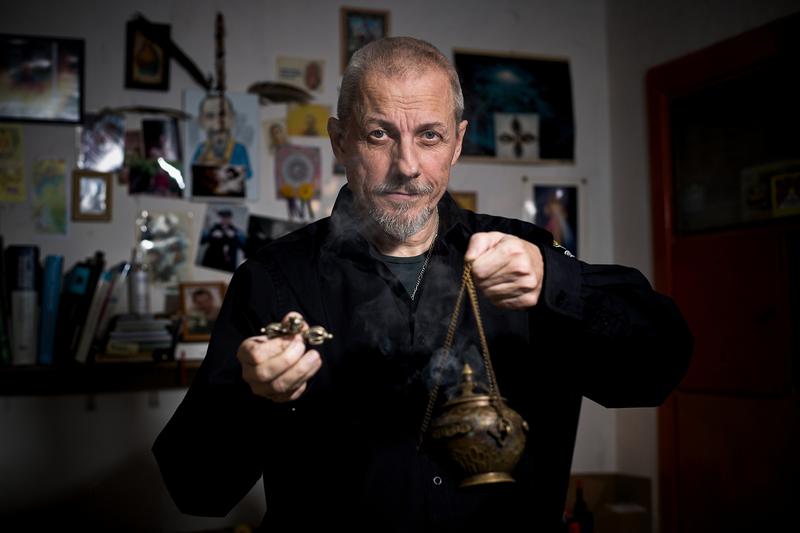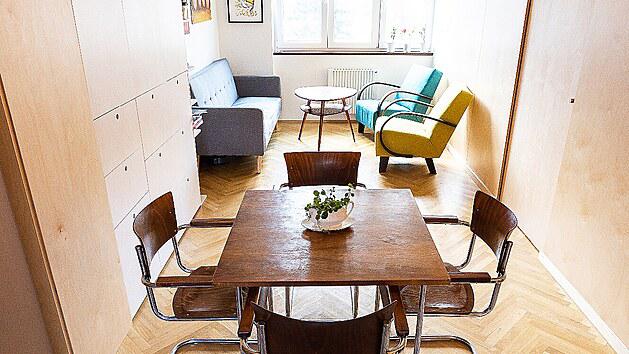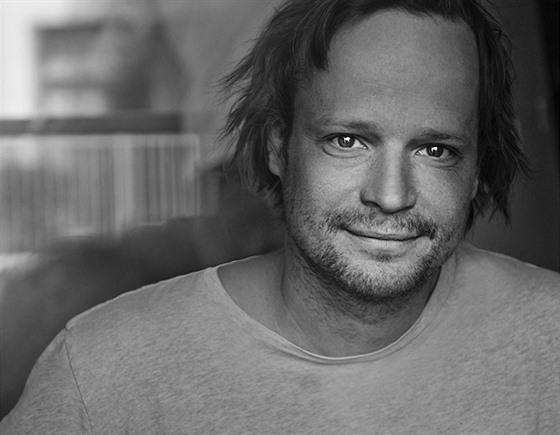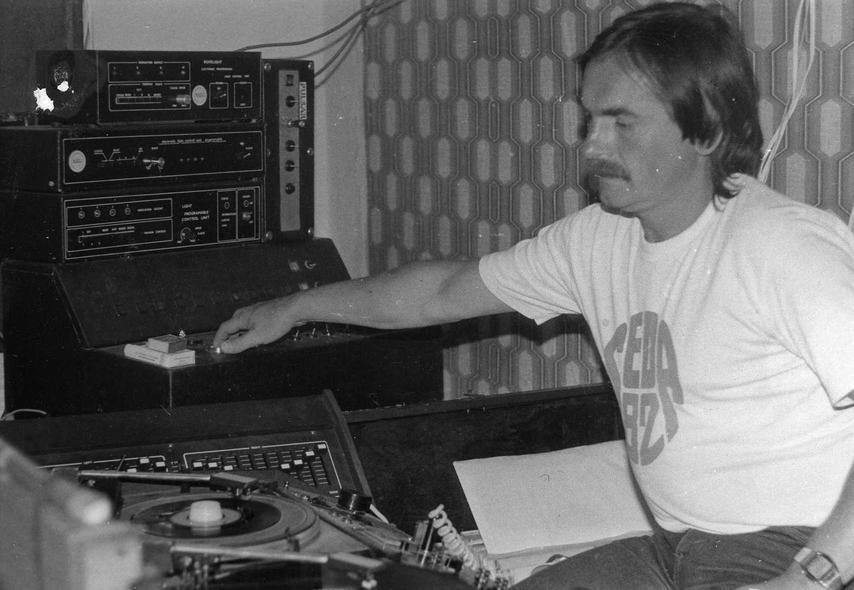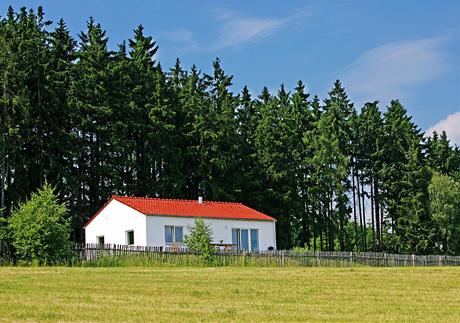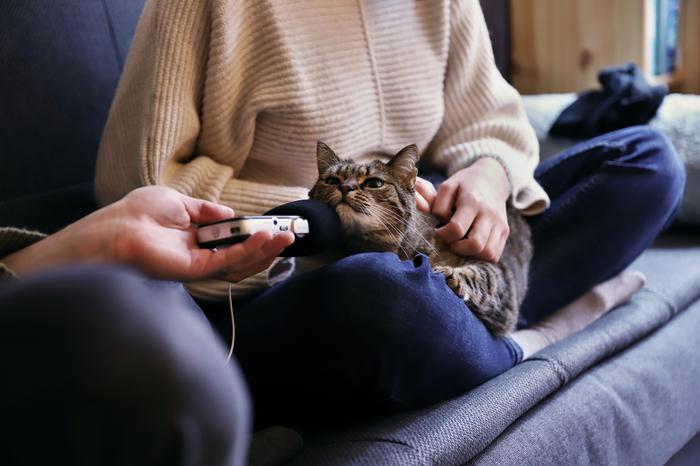
A memorable apartment building. The house at U dvo tyšek stands at the beginning of the history of the end of the 20th century
What Václav Havel's grandfather, the prominent Prague builder Vácslav Havel, would have said about such activity and interest is hard to guess. He would probably just shrug his shoulders condescendingly and remind us that even in his time social life flourished here, because the family's friends included the chairman of the first Czechoslovak government Karel Kramář, the finance minister Alois Rašín and many actors of the National Theatre.
They didn't have to crowd, in the original five-room apartment in which Vácslav lived with his wife Emilia and sons Václav Maria and Miloš from 1905, the common room was almost fifty square meters.
Founder Vácslav
Thanks to the active and forward-thinking builder Vácslav, architecturally remarkable works were created in Prague at the turn of the nineteenth and twentieth centuries. They also include an exhibition Art Nouveau apartment building, which was named U Dvou tíček according to the registration number 2000/II.
At the same time, Vácslav did not have an easy start at all. After the death of his father, who made a living by weighing wagons at the railway station, he had to abandon his studies in architecture. He initially worked at the Prague Municipal Economic Office, where he drew up plans for the construction of pavements and sewers and drew up budgets.
When he was accepted as a member of the masters of debtors, he managed to get his first big order in Lomnica nad Popelkou. A few years later he founded a construction office. As part of the operation, he mainly devoted himself to inventing floor plan solutions, but he commissioned the facades to various architects and left the implementation part to his colleagues.
Villa na Kampa was not only inhabited by Werich. It is said that the spirit of Dobrovský wandered inside.The enterprising builder and his associates bought vacant lots in the center of Prague and built residential houses on them, which he then rented out. He said he only sold when apartments with tenants brought a reasonable return. He built almost two dozen residential tenements. Thanks to his wife's dowry, Vácslav was able to realize his big dream - to build a multi-purpose department store with arcades.
Construction of Lucerna Palace began in 1907 and was completed only in 1920. Just a year before Vácslav's death. The name is said to have been born thanks to Mrs. Emilie's remark that the house resembled a lantern. And it was she who, after the death of her husband, took charge of the operation of not only the Lucerna Palace, but also the film company Lucernafilm, founded in 1912. However, fate did not grant her a long life either, she died in 1926.
Continuator sons
Václav M. Havel, the older son, followed in his father's footsteps, studying civil engineering at the Czech Technical University and already helping in drawing up the plans for the Great Hall of the Lucerne Palace. The parents didn't have deep pockets, but they kept their children down to earth in their youth. It is said that Václav M. did not receive pocket money, but earned extra money in Lucerna's dressing rooms. Like his father, he brought his construction dream with him from his travels abroad. It was not a palace, but a villa district, inspired by houses in the American California.
The rocky eel, which was called Habrová, became the ideal place for a daring project. However, Václav M. did not find the support of the Prague municipality for his bold visions, so he financed not only the construction of houses in the district, which he began to call Barrandov, but also the construction of a road, a bridge, the introduction of electricity and the construction of sewerage systems from loans, Lucerna revenues and the help of friends.
When he opened the Terasy restaurant there in 1929 and later added a swimming pool in the former quarry, which was connected to the restaurant by a cable car, the visitors just kept coming. Among the regular guests were the stars of the silver screen at the time such as Vlasta Burian, Adina Mandlová or Oldřich Nový. After all, the film studios run by Miloš Havel's younger brother were close to it.
The villa of the traveler Zikmund is a gem. The whole world can be found in itCharming bon vivant Miloš was just as capable an entrepreneur as his older brother. He fell in love with the world of film, at the age of eighteen he was already the head of Bio Lucerna, later he founded a company that bought pictures from the American film company Universal.
When he managed to build modern film studios in Barrandov in the mid-1930s, and within the family company Lucernafilm, he began to take care of the production of film hits such as Grandma, Kristián or Eva tropí hluposti, Miloš became the most influential man in contemporary cinema. The Bratři Havlové company was running like a perfectly adjusted clockwork.
Václav M. may have built a modern residential area, but he remained loyal to the house U Dvou tíčík. The younger Miloš, who lives in Barrandová, kept at least a studio apartment here. And after the marriage of Václav M. to Božena, sixteen years younger, who came from the family of the diplomat and journalist Hugo Vavrečka, the apartment on the Rašín embankment was again alive with lively social activity. Mrs. Božena, however, was not only the perfect hostess for the political and cultural leaders of the time.
As a talented artist, she took care, among other things, of the promotion of Lucerny businesses, painted advertisements and posters, and contributed her texts and illustrations to social journals. Family happiness was sealed by the birth of sons - in 1936 the future president Václav and two years later Ivan M. Where else but in an apartment on the Rašín embankment.
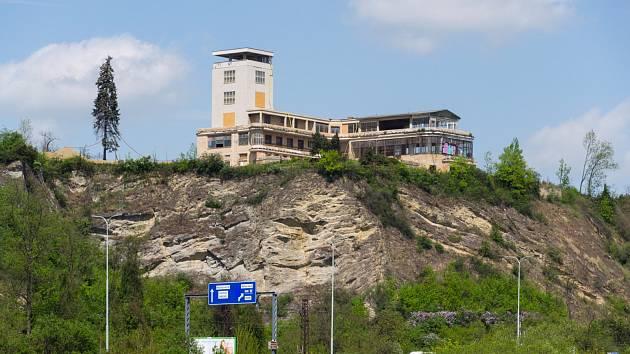
Mrs. Bozena recorded the lives of her sons in the form of collages in memorial photo albums. During the German occupation, the brothers managed the family business together, but the younger Miloš took it upon himself to deal with the Nazis. He was forced to sell his studios to them, but he was left with Lucernafilm and the possibility of producing Czech films. This "deal with the devil" gave him the opportunity to employ a lot of people who would otherwise have been fully committed to the Empire.
He fictitiously gave work to many personalities of the cultural world, whether they were directors or screenwriters. Nevertheless, after the war, many of those he helped accused him of collaboration. In October 1945, the filmmakers, most of whom filmed with him during the war, excluded him from their ranks. However, the trial later cleared Miloš of the charges.
Seven years of hard work. The connection of two dilapidated houses created a dream homeProblems did not escape his elder brother's family either. At the end of the war, in February 1945, the house at U Dvou žík was hit by bombs from an American airplane. The Havels had to move to their country residence in Vysočina. After the liberation, they threw all their energies into the restoration of their Prague home. The reconstruction of the apartment building was completed in 1947, but they did not enjoy the warmth of home for long. A new era and a new order were already knocking at the door.
After 1948, both Lucerna and Barrandov were nationalized, the former owner Václav M. became an advisor to the national administrator. In 1949, he was accused of aiding the escape to the West and spent several months in custody. However, this proved to be a mistake and he was released. He spent the rest of his life as an operator in physical education organizations, his wife Bozena used her perfect knowledge of three world languages as a guide for foreign visitors to our metropolis.
There was not much left, and the family lost not only their property but also their roof over their heads. She was supposed to move to the border village of Albrechtice, but her father managed to reverse the decision. In the end, the Havels were allowed to stay in the house, but only in the studio apartment that belonged to Miloš. He managed to escape to West Germany after many vicissitudes.
The first attempt ended up in the Russian occupation zone and later in a Czech prison, the second was successful. However, he was unable to continue his brilliant career as a film producer. He died in January 1968 in Munich.
Grandsons Václav and Ivan
The sons of the Havels did not have an easy start in life due to their poor class background. Although both of them were among the winners in elementary school, they were not allowed to study further. Ivan trained as a fine mechanic, and Václav, who began attending the real boarding high school in Poděbrady in 1947, but had to leave school after the February coup, became a chemical laboratory technician.
Ten years later, Ivan was accepted to the Faculty of Electrical Engineering at CTU, at the turn of the sixties and seventies he received a scholarship at the prestigious American University in Berkeley.
Unique in the woods near Krumlov. With this house, you can laugh at the prices of energyIn the 1960s, the older brother Václav could also continue his studies, after unsuccessful attempts he was finally accepted to the dramaturgy department at the Theater Faculty of the AMU. His first play Garden Party, which he wrote in 1963, was successfully performed on local and foreign stages. Other plays with similar acclaim followed, and Václav went from being a stage technician to becoming a dramaturg at the legendary Theater Na zábradlí.
After the invasion of Czechoslovakia by Warsaw Pact troops in August 1968, the screws began to tighten again. Absurd dramas and their author were not to the liking of the Communist rulers. The publishing and staging of Havel's plays on local stages was over, although interest in them remained on world stages.
Targeted persecution and repression, which ended in repeated imprisonment (he spent a total of more than five years behind bars), brought Václav co-authorship of the Charter 77 manifesto, which protested against the violation of human rights in the former Czechoslovakia. But these are already generally known facts that children learn about the leader of the dissent in elementary school history. There were threats, house searches, wiretapping, failing health and security guards watching his every move.
Until the beginning of the seventies, Václav and his wife Olga lived in the house U Dvou tíček, then they moved to a house in the street U Dejwického rybníčku. Brother Ivan managed to get the original spacious apartment in different shifts, in which he then lived with his second wife Květa and sons Prokop and Vojtěch. Instead of the dazzling parties organized by his parents and grandparents, he held regular Monday science seminars here.
Václav and Olga also returned to the family residence in 1986. The brothers and their families lived together in the original apartment of the Havel family. In November 1989, Václav became a leading figure of the Velvet Revolution and the Civic Forum, and on December 29, 1989, he was elected Czechoslovak president. After the division of Czechoslovakia in 1993, he was elected president of the Czech Republic and remained in this position for two terms.
In the 1990s, as part of restitution, the house U Dvou tíč was returned to the original owners. Václav Havel spent the first years of his presidency in an apartment with a view of Hradčany; in 1993, he and his wife Olga moved to a villa in the luxurious diplomatic Střešovice. Brother Ivan M. Havel and his wife stayed on the Rašín embankment.
Worth seeing. Penzion Rut commemorates the joys and sorrows of Miloš Forman's familyThe man, whose legacy is claimed by a number of domestic and international politicians and other important personalities, died ten years ago, on December 18, 2011, at his beloved cottage in Hrádečka. This spring, his brother Ivan M. Havel also died, who after the Velvet Revolution founded and for several years led the Center for Theoretical Studies, a joint workplace of Charles University and the Academy of Sciences of the Czech Republic.
A cyberneticist, who dealt with artificial intelligence, cognitive sciences and related philosophical questions, managed the magazine Vesmír for almost thirty years. In recent decades, prominent figures of our culture have lived or still live in the house U Dvou tíč, for example the opera singer Soňa Červená, the painter Jiří Sopko or the graphic artist Oldřich Kulhánek.
Barrandovské Terasy Only half a year has passed since the foundation stone was laid for the ceremonial opening of the legendary excursion restaurant. A bold white functionalist building with an observation tower, glazed on three sides and surrounded by a complex of open terraces that copied the undulating edge of the Barrandov rock, immediately won the favor of the residents of Prague. On the very first day, it welcomed over 50,000 visitors. The free tram and bus line, established by Václav M. Havel, took people from the center of the metropolis directly to Terasy. In the main season, up to three thousand lunches were prepared in the restaurant, while the famous orchestra of R. A. Dvorský won on the dance floor. In addition to the swimming pool, tennis courts, a sandy beach and a boatyard were available to visitors. The stylish night bar Trilobit opened in 1937. During the Nazi occupation, the restaurant remained open, the Germans set up anti-aircraft defense headquarters in the building. A few days after the February communist putsch in 1948, representatives of the regional committee of the communist party announced to Václav M. Havel that they were taking over his property, including Teras. The once famous swimming pool ended up under a collapsed rock, the originally well-kept greenery of the local gardens turned into neglected stubble. Although the Trilobite bar survived until 1982, it was eventually closed anyway. In 1988, the Terraces became a cultural monument, but it was already too late to save them. The lookout restaurant operated for the longest time, the doors were closed after the last visitor in 1994. The area was returned to the Havel family. The brothers gave their shares to their wives. In 2000, the second wife of Václav Havel, Dagmar Veškrnová-Havlová, bought the share in Terasy from her sister-in-law and for a while became the owner of the entire complex. Three years later, however, she decided to sell it to Liberec businessman Michalis Dzikos, who embarked on the restoration of the Barrandovské terraces. Compared to the original of the First Republic, a hotel and a set of apartments will be added, the development of new projects was entrusted to the renowned Brno studio Kuba & Sawyer architects.
Author: (ml)

